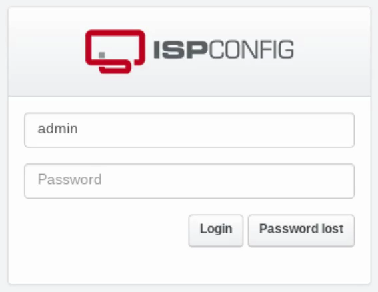ISPConfig is a web interface for managing and configuring servers for web hosting and similar purposes. It provides users with the ability to easily manage websites, email accounts, databases, DNS records, and other functions necessary for running a web server.
A Linux server with a clean installation is fully functional and usable for a variety of tasks, but for managing a web server and other applications, it can be challenging for the average user. Creating and configuring all necessary files and settings manually is complicated. By using a configuration manager like ISPConfig, the process is much easier and more efficient. ISPConfig provides a user interface for managing web servers, databases, email accounts, and other applications, which allows administrators to easily manage their servers and successfully operate their web projects.

ISPConfig is an open-source software solution for managing web and email servers. It allows for managing multiple domains, email accounts, databases, FTP accounts, and other functions through a simple web interface. It supports the installation and configuration of Apache and Nginx web servers, Postfix email server with Dovecot POP3/IMAP server, MySQL/MariaDB database server, and other components. It supports secure HTTPS and SSL certificates. It provides automatic configuration of Let's Encrypt SSL certificates, which provide free SSL certificates. It offers a range of tools for securing the server, managing user accounts, and monitoring performance. ISPConfig is developed by an active community and is available for free download and use.
Web hosting is a service that allows users to place their websites on the internet. Web hosting providers provide space on a server where users can place their web page files and connect their domains to the server to make their websites available on the internet. Web hosting providers also provide various features and tools such as PHP and databases and tools for managing and maintaining websites. Depending on the level of service, they may also offer backup.
Mail hosting is a service provided by a hosting provider or a specialized company that focuses on providing email solutions for businesses and individuals. Mail hosting provides users with email addresses that are based on their own domain name. This allows users to create addresses such as name@their-domain.com, which looks more professional than using common email services such as Gmail or Yahoo. Mail hosting also provides other features such as antivirus and antispam filters, message archiving, access to emails through a web interface (such as Roundcube) or POP3 and IMAP protocols, and possibly other support services. These features are useful for businesses and organizations that need email solutions on their own domain.
Common web/mail hosting, as well as solutions based on ISPConfig, provide several basic services:
The main advantages of ISPConfig are:
For PHP web applications, you need:
DNS record management is necessary for translating domain names to IP addresses so that users can access services
and
websites using easily understandable and memorable addresses. DNS records contain information about which IP address
specific domain names point to, such as server addresses for email services or web servers. DNS record management
involves creating, modifying, and deleting DNS records in the domain zone.
DNS can be managed in ISP Config or with your domain registrar.
Do you need to run one or more web applications on your own server with the possibility of convenient web configuration? Inquire about the ISP Config installation.
Copyright © 2016 Minimax Digital Firm - Design: Tooplate
Bc. Josef Jebavý - blog www.josefjebavy.cz- IT consulting, server administration and development of customized SW / HW projects